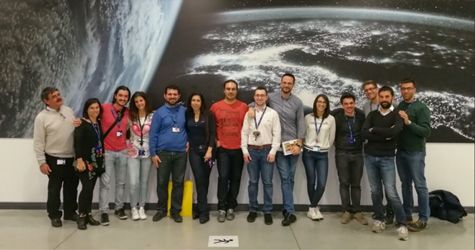Early Career Scientist Spotlight
Mr. Iban Ibañez Domenech
Systems Engineer
Observational Cosmology Laboratory
What does a typical day at work look like for you?
A day working at NASA Goddard Space Flight Center is usually quite dynamic given the nature of my job. As a Systems Engineer for a Space Exploration system, I have different roles depending on the phase of the missions I support. At the early stage, I focus on the definition of the system’s requirements and architecture at a higher level. During the implementation phase, I coordinate the development efforts from mechanical, electrical, thermal, and radio frequency experts, among other professionals. Since I have a strong background on electrical engineering, I am usually also deeply involved in the design and development of the electronic systems. The Integration and Testing (I&T) phase is the last and, in my opinion, the most rewarding one for someone who has been involved in the overall mission timeline. As an I&T Lead, I need to organize the integration of all subsystems and the environmental testing to validate the space instrument under the critical space launching vehicle and orbital conditions. During this phase, I spend most of the day arranging the tests in the thermal vacuum chamber facilities, vibration tables, acoustic chambers and anechoic chambers. This is a very dynamic time, as we are moving between different laboratories and a significant amount of schedule flexibility is required. Here is when one can experience how the effort of several years turns into a more mature space system that might provide us with unprecedented science.
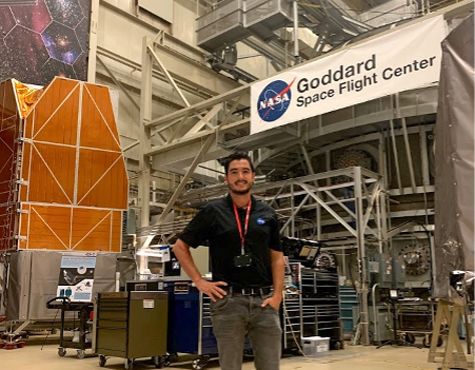
Credit: Iker Liceaga Indart
Did you always know that you wanted to be an engineer in the space sector?
When I was in high school, I was always especially interested in mathematics and physics. I really enjoyed solving math problems and puzzles, working on small side projects, and building small prototypes with other friends when I got older. This is probably the reason why my high school teachers strongly encouraged me to apply for an engineering degree from UPC Barcelona, Spain and ultimately my master's degree from RWTH Aachen, Germany. In my final years after specializing in remote sensing, I had the option to choose which industry I would dedicate my career to, and the best options were automotive and space. At that time, I had no experience in either of these sectors. Being able to support technologies that will allow us to better understand the world we live in and explore the unknown sparked a special interest for me, and I decided to join the space sector.
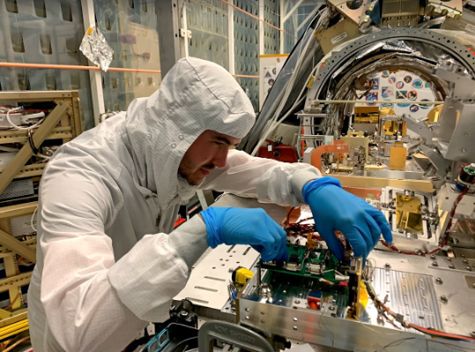
Credit: Jordi Vila Hernandez de Lorenzo
What skills are most useful in your work, and where you developed these skills?
I would differentiate between technical and soft skills. In my current role, I interface teams from very different fields of expertise and working methodologies. In the first years of my career, I had the opportunity to work in the European Space industry at different design and manufacturing sites. I travelled nearly every month between Germany and Italy where different satellite subsystems were produced in order to support the overall development. This multicultural experience taught me the required flexibility to work with different teams and methodologies, and I consider that experience the most valuable one for my current position. From the technical point of view, I would say that I learned the most from peer-to-peer discussions and constructive feedback from great colleagues and experts in each discipline. I have also spent time self-learning the skills required to complete a task when it had to be conducted. I feel there is no more efficient way to learn something than applying the knowledge right away in your job.
Credit: Luca di Marco Napini
Tell us about one project of yours that has been particularly impactful in your field.
The main project I am currently supporting is called Space Exploration Synthetic Aperture Radar (SESAR). This consists of a ground-penetrating radar satellite instrument that will be able to map the surface and subsurface of the Moon and Mars in search for the presence of ice. These kinds of results are especially meaningful for future missions like Artemis, as the scientific observations we produce will help define the next human exploration missions in the Solar System. In my previous role, I used to be involved in Earth observation satellites focusing on meteorological events on our own planet. Now, being able to directly support missions on the search for life and understand how the terrain of planets from our Solar System was formed, is a satisfaction that makes me proud of my daily contributions.
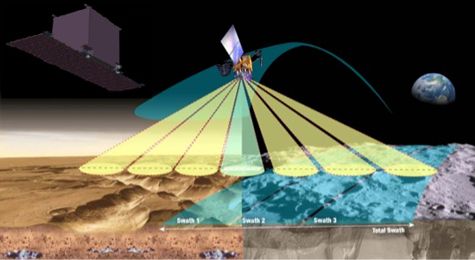
Credit: NASA
What is one of your favorite moments in your career so far?
One of the greatest moments I can remember during my professional career is when Airbus Defence and Space gave me the opportunity to present my Master’s Thesis on radar processing algorithms at their premises in Ulm, Germany. Being recognized as a graduate student by this institution in the space sector encouraged me to begin my career in the industry. During my first years in Europe, I had the opportunity to learn and contribute to space satellite payload development projects for Earth observation. This crucial experience later served as a springboard for me to obtain a research associate position to work at NASA Goddard Space Flight Center. Since my first day, I have enjoyed every second of this challenging journey being part of the most meaningful scientific missions I could have ever imagined.
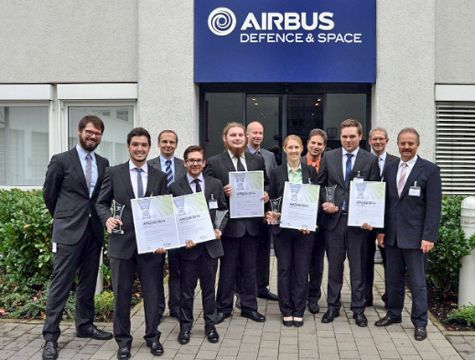
Credit: Iban Ibañez Domenech
What do you like doing on your free time?
I am from the Mediterranean coast in Barcelona, Spain. I have always found the geographical location of my hometown optimal for my hobbies, as we have both the seaside and Pyrenees Mountains close by. When I discovered sailing, I did not hesitate to get the license so I could practice it in other Mediterranean countries. Skiing is also another passion. During the years I lived in Germany, I was lucky to gather with a group of friends who enjoyed organizing yearly skiing trips to the Alps. Last but not least, I would say learning languages has been strongly motivated by my job, as I always try to interact with the locals when I have the chance to travel abroad. Living or spending large amounts of time in different countries like Germany, Italy, Spain and now in the United States has provided me with this multicultural experience and knowledge, which I can actually use for my job.
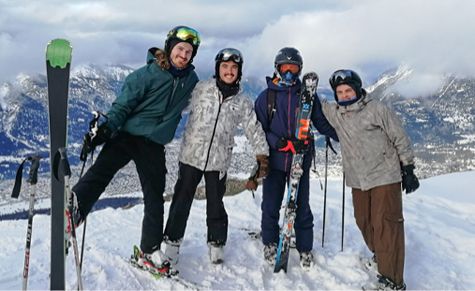
Credit: Alessandro Ferrari
What early career advice do you have for those looking to do what you do?
I would say to always stay motivated to learn as much as you can by yourself and through experience. Nowadays, with the internet we are lucky to have all the knowledge available just few clicks away. Another key point that has helped me through my career path is to be always curious to understand the real purpose of the missions I am working on. As scientists and especially as engineers, we easily end up getting lost in the details of the systems we are developing or the data we are studying. Understanding the end goals of the missions you are working on is very helpful to stay motivated on your duties, even if these can be found sometimes in a significantly lower level of abstraction.
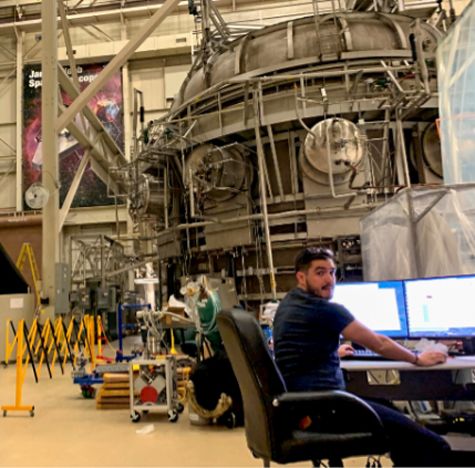
Credit: Jordi Vila Hernandez de Lorenzo
Biography
Home Town:
Barcelona, Spain
Undergraduate Degree:
B.S in Electrical Engineering, Universitat Politècnica de Catalunya (UPC), Barcelona, Spain
Post-graduate Degrees:
M.S. in Electrical Engineering, RWTH University, Aachen, Germany
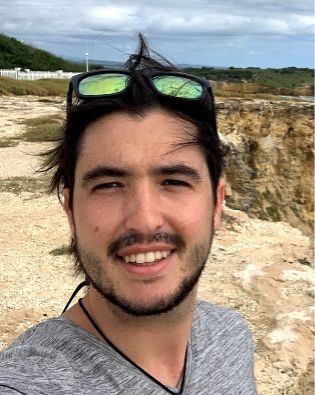
Link to Mr. Ibanez Domenech's GSFC Bio

